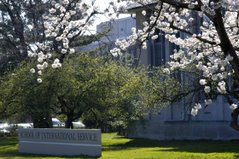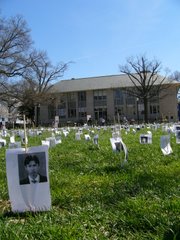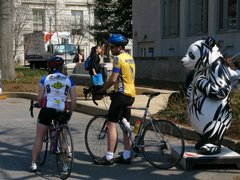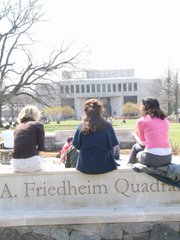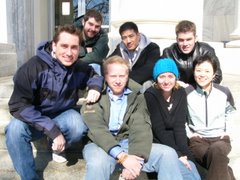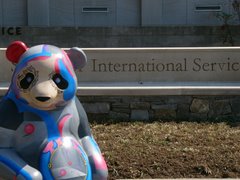
Hello, my name is Josh Richards, or, if you are one of the many people who misread my name, Jonathan or Jeff. I have been working with Graduate Admissions since last Fall and attend classes full-time here at SIS. I got to tell you, it's been a ride. I talk with and write several people everyday, which is to say that if you were ever in a panic about your application, my words have soothed you worries.
Anyhow, I think one of the more interesting aspects of A.U. is the guest speakers they bring in on almost a daily basis. In fact, we had a pretty interesting panel discussion on North Korea in my International Relations of East Asia course. The panel featured guests from North and South Korea, China, Japan and Taiwan. The speakers were very knowledgeable and didn’t dodge a single question (which is sometime the case with guest speakers). I will keep my eye out for more, and so should you, because they are open to anyone interested in attending. See you then!
Josh
Anyhow, I think one of the more interesting aspects of A.U. is the guest speakers they bring in on almost a daily basis. In fact, we had a pretty interesting panel discussion on North Korea in my International Relations of East Asia course. The panel featured guests from North and South Korea, China, Japan and Taiwan. The speakers were very knowledgeable and didn’t dodge a single question (which is sometime the case with guest speakers). I will keep my eye out for more, and so should you, because they are open to anyone interested in attending. See you then!
Josh
